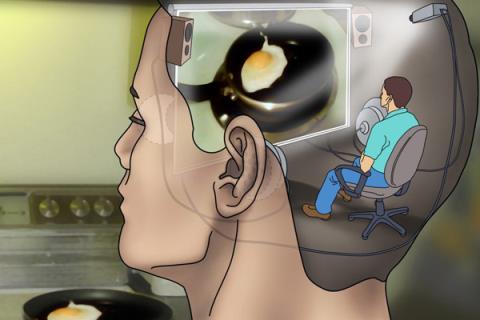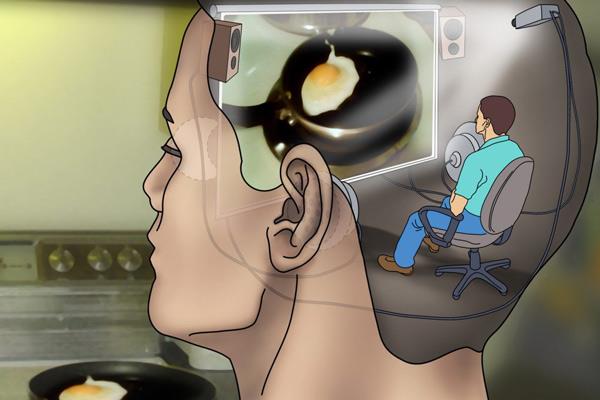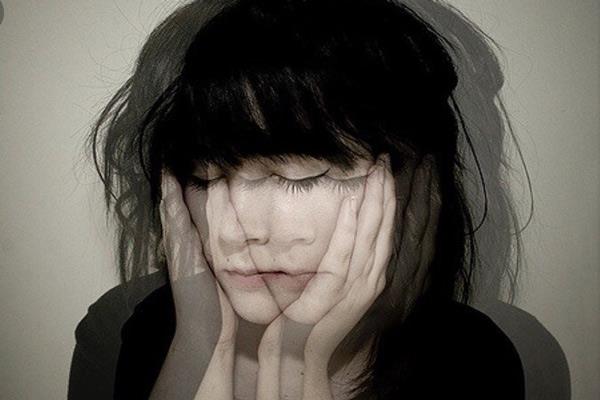What is depersonalization disorder?

`Some people with depersonalization go through periods of feeling disconnected or detached from their bodies and thoughts. The disorder is sometimes described as feeling like you are observing yourself from outside your body or like being in a dream. It is because of these strange characteristics that people sometimes think they have spiritual problems. So what is depersonalization disorder?
content
- 1. What is depersonalization?
- 2. What are the symptoms of depersonalization?
- 3. What is the cause of this disorder?
- 4. Treatment of depersonalization disorder
- 5. Some ways to help you overcome depersonalization
1. What is depersonalization?
This is a disorder in which the person goes through periods of feeling like they are disconnected or disconnected from their body and thoughts. It is sometimes described as feeling like you are observing yourself from outside your body or like being in a dream.
However, people with this disorder still realize that things are not as they appear. They know that something strange is going on and that what they are experiencing is not real. An episode of feeling disconnected from reality can last a few minutes, very rarely years. Depersonalization can also be a symptom of other disorders. It includes substance abuse , personality disorders , epilepsy, and several other brain diseases.

Sometimes the person feels like standing outside of the body and observing themselves
Dissociative disorder is a subgroup of dissociative disorders. Dissociative disorders are mental conditions that involve disruption or disruption of memory, consciousness, perception, identity, perception. When one or more of these functions is disrupted, symptoms can occur. These symptoms can affect a person's general function.
2. What are the symptoms of depersonalization?
The main feature in the symptoms of depersonalization disorder is a distorted perception of the body. The person may feel like a robot or in a dream. Some people may fear that they are going crazy and may become depressed , anxious, or panicky. You may experience feelings such as:
- It feels like being outside of the body, sometimes as if you're looking down at yourself from above.
- Feeling detached from yourself, as if you didn't really exist. Feeling like I'm in a dream, a vague sense of reality.
- Numbness in your mind or body, as if your senses are turned off, not feeling anything.
- Feeling like you can't control what you do or say. Body and mind seem disconnected.
- Feeling like parts of the body are not the right size or are deformed.
- Unable to connect emotions with memories.

Feeling like everything around is hazy, like in a dream
For some people, symptoms are mild and last only a short time. For others, however, symptoms may be chronic (ongoing) and persist or recur over many years. It leads to problems with day-to-day functioning or even loss of function.
3. What is the cause of this disorder?
The exact cause of this disorder is not yet understood. Symptoms of the disorder may be related to childhood trauma or other events that caused severe emotional stress or trauma. However, there are some people who have been through trauma in the past and then have not had it. This may be due to genetic and environmental factors.
Elevated stress and fear can trigger periods of depersonalization. Certain major depressive or anxiety disorders may also contribute to this condition. Some people after using stimulants also report experiencing depersonalization.
4. Treatment of depersonalization disorder
Most people with depersonalization disorder seek treatment because of symptoms of depression or anxiety. Very rarely do they seek therapy due to depersonalization symptoms. In many cases, symptoms will go away over time. Treatment is usually only needed when the disorder persists or recurs. Or if the symptoms are particularly bothersome to the person and affect their quality of life.
The goal of treatment is to address all stressors or triggers that trigger a depersonalization episode. The best treatment depends on the individual and the severity of the symptoms. Psychotherapy is often the treatment of choice for this disorder. Treatments for individualized disorders may include:
Psychotherapy
This method uses psychological techniques designed to help a person get to know themselves better. They help them become aware of their thoughts and feelings about psychological conflict. Traumatic situations can lead to depersonalization experiences.

Psychotherapy is one of the methods of treating depersonalization disorder
Drug treatment
Medications are not usually used to treat depersonalization disorder. However, if a person with this disorder also has depression or anxiety, medication will be given to treat these conditions.
>> See more articles: Drugs to treat depression: Basic information for you.
Clinical hypnosis treatment
This is a therapeutic technique that uses relaxation, focus, and intense attention to achieve a state of consciousness or cognitive awakening. It helps the person discover the thoughts, feelings, and memories hidden in their unconscious.

Hypnosis method
5. Some ways to help you overcome depersonalization
Acknowledge and accept the feelings of depersonalization
The feeling of depersonalization is usually not dangerous and will fade away. Remind yourself that this feeling is uncomfortable but only temporary. This will make the disease less likely to affect you. Tell yourself, "I feel weird right now, but I'm fine, it'll pass soon."
Focus on your immediate surroundings
Notice what you're seeing around you, what sounds you're hearing. Use an object nearby, such as a pen, to write down what you are feeling or hearing. This will focus the mind on reality and reduce feelings of detachment.
Talk to people around
Start a conversation, or return to the current conversation. This will bring you back to reality. If you're alone, text or call someone to talk.
Consider the situations that put you in this state
As noted above, this condition will often have a trigger. It's important that you know when it's about to kick in. For example, thinking about a past trauma or having extreme anxiety. During your outings of this state, list everything you felt before the onset of the disorder. This helps you identify sooner.
Depersonalization disorder, although not a dangerous disease, brings a lot of trouble to sufferers. Recovery is possible for many patients. Symptoms associated with this disorder usually resolve on their own. Or, after being treated, the person will deal with the stress or trauma that caused the symptoms. However, without treatment, the disorder is likely to have more episodes. Through the above article, I hope you have a better view of this disorder.